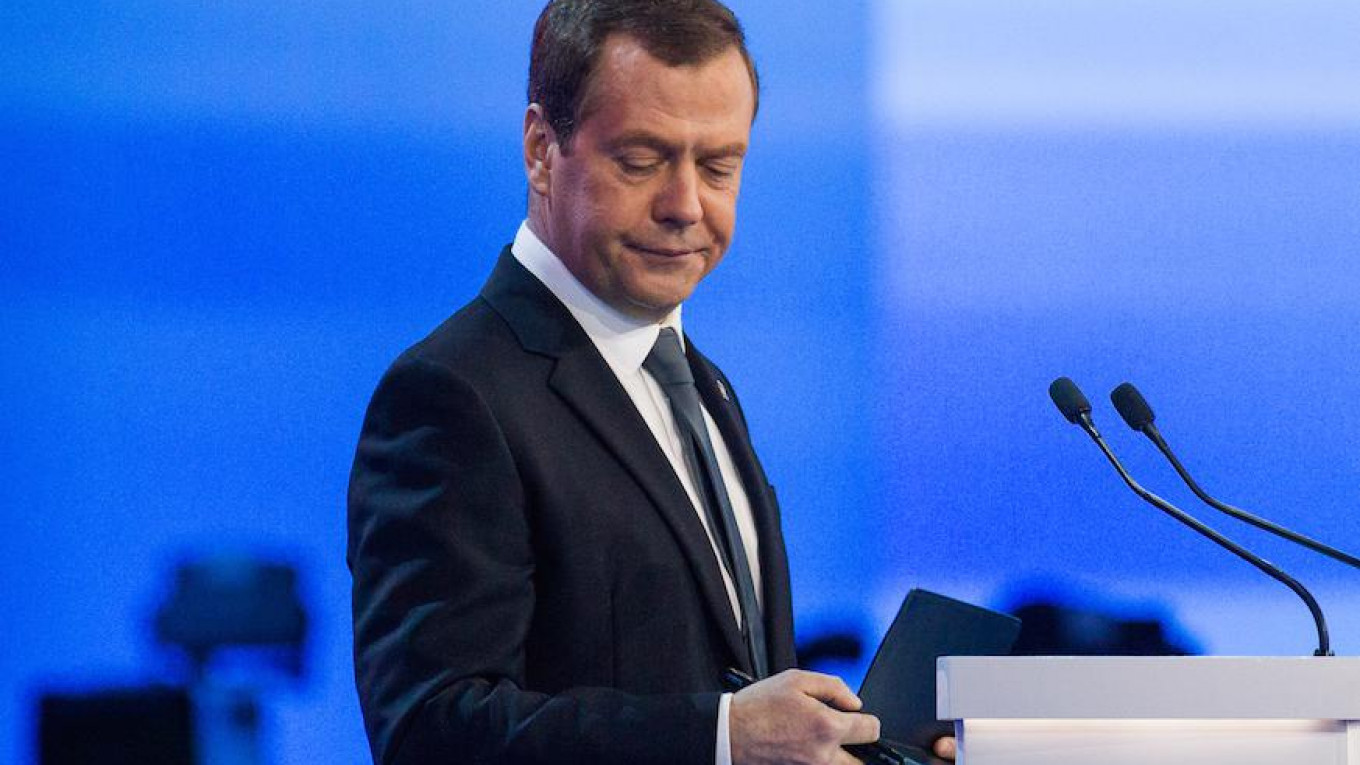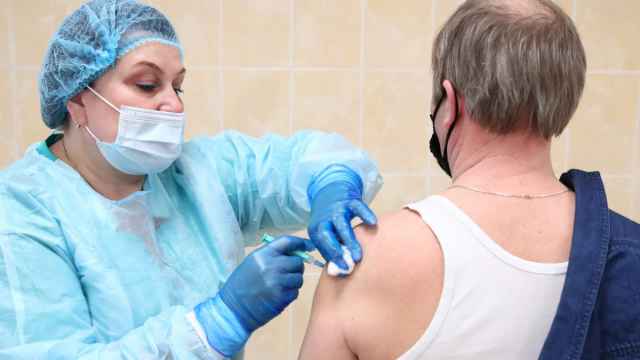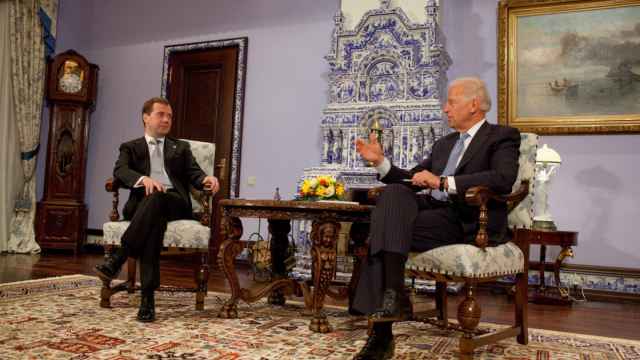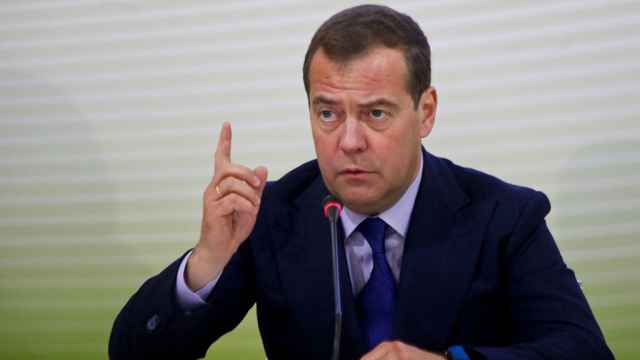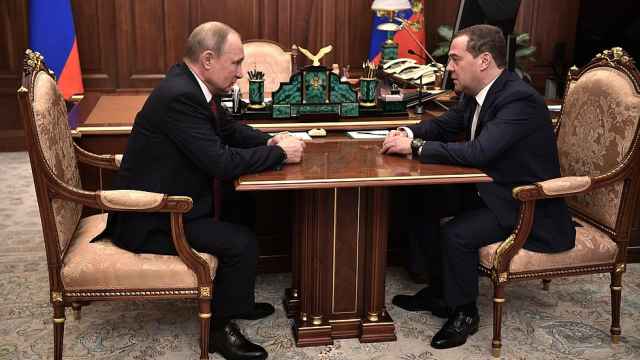A corruption investigation and a sluggish economy have not left Russian Prime Minister Dmitry Medvedev untouched — almost half of those questioned in a new poll think he should resign.
The survey, carried out this earlier month by the independent Levada Center pollster, showed that 45 percent of Russians think Medvedev should quit his post.
Medvedev's popularity has fallen steadily since May 2016, when 14 percent of those questioned in a similar poll say they had “full confidence” in the prime minister. By December, that figure had dropped to 9 percent, falling further to only 3 percent in the most recent poll.
Meanwhile, the number of people who said they “fully distrusted” Medvedev has risen from 14 percent last year to 19 percent in the latest poll.
Medvedev's falling ratings can be attributed to a combination of increasing economic problems and the slow fading of the euphoria around the annexation of Crimea in March 2014, Levada Center sociologist Stepan Goncharov told the RBC media outlet. An investigation by opposition activist Alexei Navalny accusing Medvedev of rampant corruption has also affected his reputation, Goncharov said.
On March 26, tens of thousands of people took to the streets in anti-corruption protests organized by Navalny across the country. Medvedev's persona was central to the protests, with many people carrying banners, small ducks and trainers — in reference to some of the allegations made in Navalny's investigation.
“It appears that the attacks on Medvedev have achieved their goal,” political scientist Konstantin Kalachev told RBC.
But the long-term negative trend in Medvedev's ratings are also a reflection of the general mood, argues political scientist Abbas Gallyamov.
“His work is routine-like and does not elicit raging passion,” Gallyamov told RBC. “There is less money to go around in the economy, people are told 'No' more often. The fact that Medvedev's ratings have been declining for some time, shows that this is a systemic problem, and not only the result of Navalny's attacks.”
The politician himself is not too concerned about the results, his spokeswoman Natalya Timakova said at a press meeting, according to the Interfax news agency. "The head of government doesn't attach much importance to such sociological polls, especially those conducted by Levada Center on specific politically-motivated orders," she was cited as saying.
Last year, the Russian Justice Ministry blacklisted Levada Center as a "foreign agent" in accordance with a law that applies the label to non-governmental organizations which receive foreign funding and engage in activity deemed "political." The pollster has always contested the label and dismissed the law as a tool to silence potentially politically sensitive sociological surveys.
The poll questioned 1,600 people in 48 Russian regions, between Apr.7 -10.
A Message from The Moscow Times:
Dear readers,
We are facing unprecedented challenges. Russia's Prosecutor General's Office has designated The Moscow Times as an "undesirable" organization, criminalizing our work and putting our staff at risk of prosecution. This follows our earlier unjust labeling as a "foreign agent."
These actions are direct attempts to silence independent journalism in Russia. The authorities claim our work "discredits the decisions of the Russian leadership." We see things differently: we strive to provide accurate, unbiased reporting on Russia.
We, the journalists of The Moscow Times, refuse to be silenced. But to continue our work, we need your help.
Your support, no matter how small, makes a world of difference. If you can, please support us monthly starting from just $2. It's quick to set up, and every contribution makes a significant impact.
By supporting The Moscow Times, you're defending open, independent journalism in the face of repression. Thank you for standing with us.
Remind me later.


